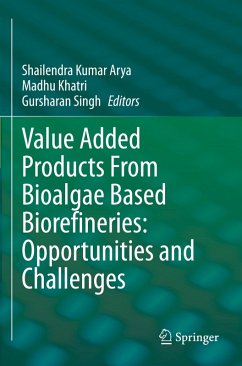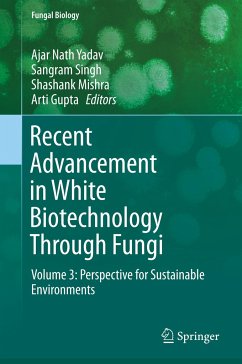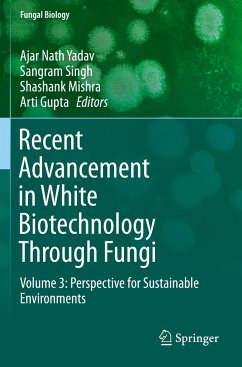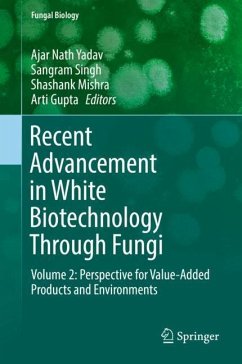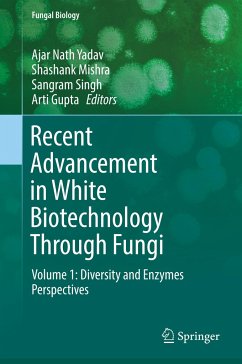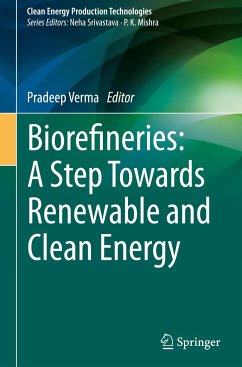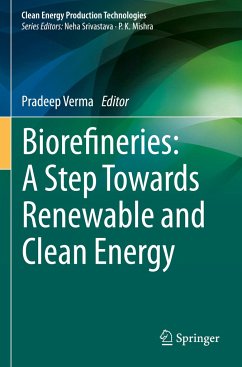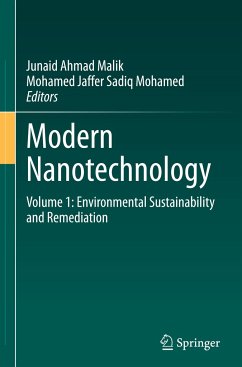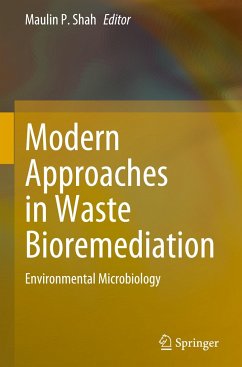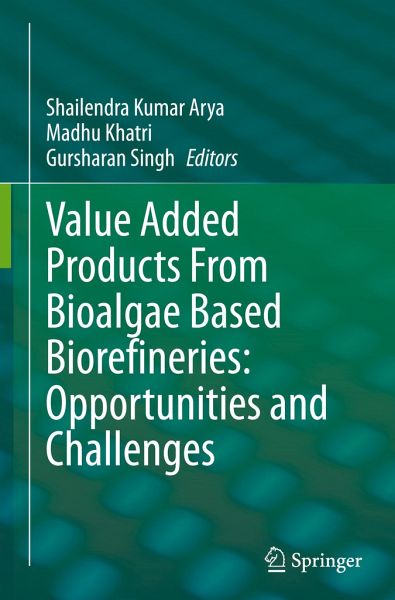
Value Added Products From Bioalgae Based Biorefineries: Opportunities and Challenges

PAYBACK Punkte
76 °P sammeln!
This book covers wide aspects of algal technology and algae-based biorefinery aspects. Algae are the most prevalent, primitive, and abundant microbes on Earth, however, the commercialization of algal-based value-added products is still low due to the negligible dissemination of knowledge flow among the stakeholders and researchers.This book provides up-to-date information on the cultivation of microalgae, their harvesting, downstream processing, and diverse applications. It further discusses the macromolecules existing in microalgae, such as proteins, carbohydrates, and lipids, poly-unsaturate...
This book covers wide aspects of algal technology and algae-based biorefinery aspects. Algae are the most prevalent, primitive, and abundant microbes on Earth, however, the commercialization of algal-based value-added products is still low due to the negligible dissemination of knowledge flow among the stakeholders and researchers.
This book provides up-to-date information on the cultivation of microalgae, their harvesting, downstream processing, and diverse applications. It further discusses the macromolecules existing in microalgae, such as proteins, carbohydrates, and lipids, poly-unsaturated fatty acids, peptides, exo-polysaccharides, flavonoids and antioxidants. This book also highlights the advantages and some real-time challenges before the establishment of sustainable algal-based biorefineries. Further, it includes clear flow charts and figures in each chapter to aid in interpretation of every technical concept.
This book motivates readers, entrepreneurs, and young farmers to exploit easily growing microalgae through cottage to large-scale biorefineries and start their own businesses for the production of value-added products.
This book provides up-to-date information on the cultivation of microalgae, their harvesting, downstream processing, and diverse applications. It further discusses the macromolecules existing in microalgae, such as proteins, carbohydrates, and lipids, poly-unsaturated fatty acids, peptides, exo-polysaccharides, flavonoids and antioxidants. This book also highlights the advantages and some real-time challenges before the establishment of sustainable algal-based biorefineries. Further, it includes clear flow charts and figures in each chapter to aid in interpretation of every technical concept.
This book motivates readers, entrepreneurs, and young farmers to exploit easily growing microalgae through cottage to large-scale biorefineries and start their own businesses for the production of value-added products.



